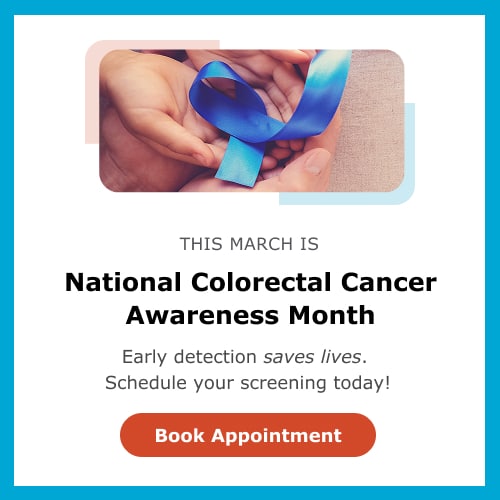You’re in great health and feel good.
You eat right.
You go to bed at a reasonable hour.
So, why do you need a primary care physician (PCP)?
Well, you most likely drive your car daily, and you’re a safe driver. Your insurance company says so, too.
But you wouldn’t keep driving, day in and day out, without going to your trusted mechanic for checkups, right?
Having a primary care doctor is much the same.
If you wait until your car is “sick” to take it to the mechanic, chances are you’ll need a tow truck to get it there.
In the same respect, you shouldn’t wait until you need a “tune-up” to make an appointment with a physician. You need your body healthy and seeing a doctor regularly is an investment in your health.
7 Reasons Why You Need a Primary Care Doctor
Here’s a list of reasons why—even if you’re healthy—seeing a primary care doctor regularly is important.
#1: Open Communication
At the heart of every doctor/patient relationship is great communication. Communicating your needs and occasional ailments to your provider allows them to develop a treatment plan that’s easy to understand and follow. It’s a lot easier to chat with a doctor you’re already comfortable with if you later experience a more serious condition.
#2: Continuous Health Monitoring
A good primary care physician understands the importance of holistic health. Your doctor wants to ensure you remain healthy, which calls for regular diabetes, high blood pressure, and other routine checkups.
It’s a fact, healthy people who have a primary care provider are proven to be healthier than those who don’t. A study published by JAMA Internal Medicine analyzed the survey results from 49,286 U.S. adults with a primary care provider and 21,133 U.S. adults without a provider. They found the populations with providers were significantly more likely to fill prescription medications and have more routine, preventative visits in the past year than the population without a provider. In addition, the population with a primary care provider is more likely to receive high-value medical care, such as cancer screenings.
#3: Managing Chronic Illnesses
According to the CDC,60% of Americans have one chronic illness, while 40% have at least two. It’s these chronic illnesses that cause the most deaths and disability claims in the nation. They’re the main drivers of the $3.8 trillion cost of healthcare each year.
Some of these chronic illnesses include:
- Diabetes
- COPD
- Heart disease
- High blood pressure
- Arthritis
When you choose a quality primary care physician in Connecticut, you can be diagnosed earlier, and keep these types of illnesses under control, which means a healthier life overall.
#4: Providing Referrals for Specialists
Occasionally, you may have a health issue that a primary care doctor isn’t able to address. In these cases, a PCP can refer you to a specialist who can, such as a neurologist, podiatrist, or oncologist, among others. Your PCP can also work together with these specialists to ensure they completely understand your medical history.
#5: Lower Overall Costs of Healthcare
Seeing your PCP regularly can actually lower your overall healthcare costs. Regular appointments open the lines of communication and help discover illnesses in their early stages—when they are easier to treat.
By seeing your doctor regularly, you have access to screenings and tests’ proactively, potentially catching an illness in its earliest stages before it becomes something untreatable or worse. For instance, proactive cancer screenings occur prior to diagnosis and most often are covered by your insurance with no out-of-pocket expense. Catching cancer in its earliest stage when it’s most treatable can save your life and your money. It is reported that the average wage earner in the United States brings home $3,600 a month before taxes which is just a third of the cost of some chemotherapy and immunotherapy infusions.
#6: Fewer Visits to the Hospital or Emergency Room
Besides lowering your healthcare costs, having a PCP also means you’re much less likely to require hospitalization or a visit to the emergency room. One of the primary reasons is because those without a primary care provider often wait until an issue is no longer manageable on their own before they decide to get a checkup. A doctor can detect symptoms when they first appear. Any delay in getting care can be serious.
#7: Housing Your Health History
Your primary care physician keeps a continuously updated record of your health history, plus all screenings or lab tests you’ve had performed. If the day arises that you need a specialist referral, your entire health history is in one place.
PACT, a partner of Hartford HealthCare for Your Family’s Primary Care in Connecticut
We understand how important and valuable your relationship with your healthcare provider is. It’s a sacred trust that guides everything we do. We make it easy to see your doctor at convenient locations around Connecticut. Our primary care offices have locations across the state, from Ansonia to West Haven.
Looking For a Primary Care Doctor in Connecticut?
PACT Primary Care is Accepting New Patients!
Locations throughout Connecticut in Guilford, Hamden, Madison, Milford, New Haven, Orange, West Haven and Wallingford.
To schedule an appointment, request an appointment online here or call a local center near you.









